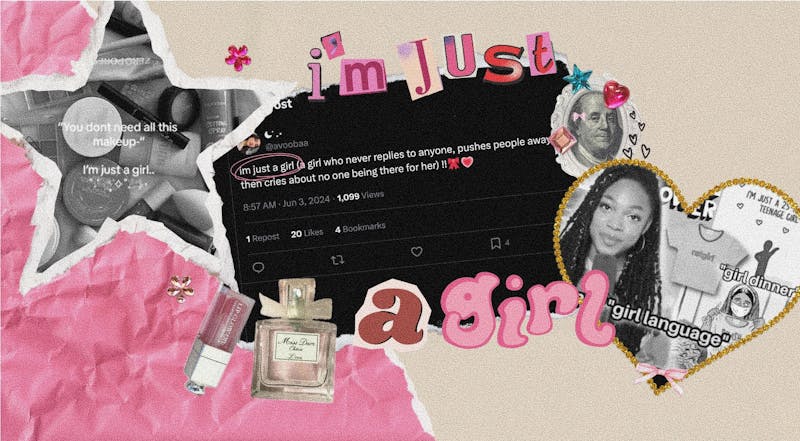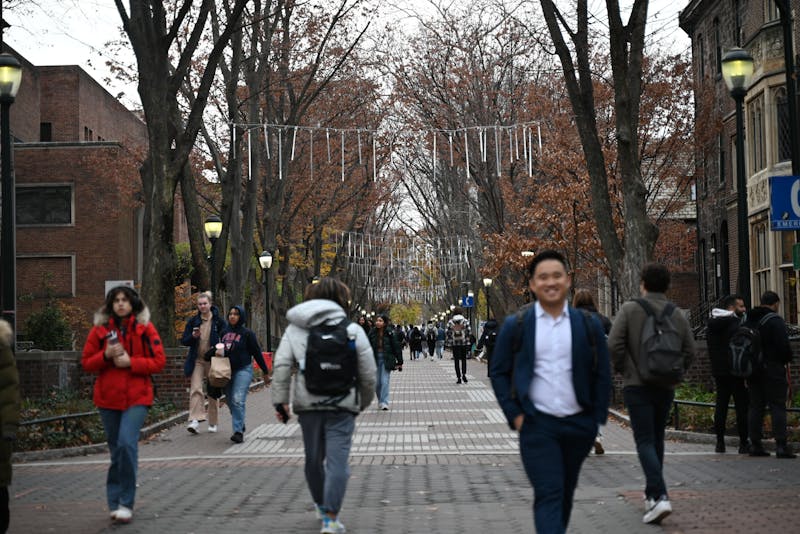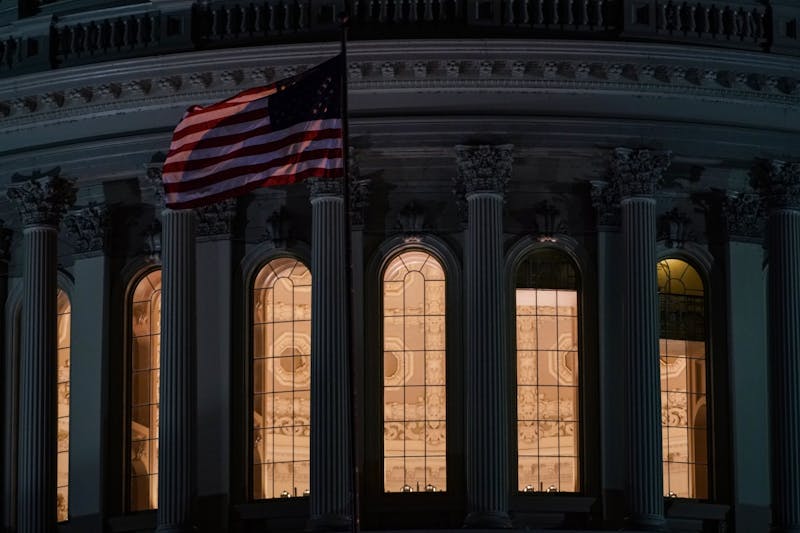
It isn’t hard to imagine a dystopian novel where the political parties of a country become split by gender rather than by genuine ideological framework. It seems we may be headed there.
The upcoming presidential election is one of truly indescribable importance. The political and social gap between Americans and the government and between young men and women has rarely been more palpable.
The national mood of the 2020 presidential election felt far more consequential and bleak than this year’s mood because of the uncertainty that the COVID-19 pandemic created in the economy and healthcare system. But 2020 sparked a fundamental shift in the American political landscape that will take years to fully understand and synthesize.
One of the immediately obvious effects of pandemic-era politics was the stark decrease of public trust in government. In 2023, only “16% of Americans said they trusted the government just about always or most of the time, which was among the lowest measures in nearly seven decades of polling.”
And perhaps also increasingly obvious yet perplexing is the political divide we now see among young men and women. But, there’s also a larger cultural divide that transcends policy.
For young men, “the hyper-masculinity of the right, many of them said, is at the core of its appeal, not policies or party politics. … Several said they hide their conservative views because women they know have said they won’t date right-leaning men.”
But opposingly, when young woman Isabelle Ems, a Penn State student, was asked about social attitudes between men and women, she “cited widely viewed TikTok videos showing women being asked if they would rather be stuck in the woods with a man or a bear. Most women picked the bear, reasoning that a man might be more dangerous. Ems wasn’t sure which she would pick — though the bear, she said, could well be the safer bet.”
Although I hypothesize that this general distrust largely comes from COVID-19 reverberations, it would be misleading to suggest that COVID-19 is solely responsible for it. As I argued last year, social media is in large part responsible for our distrust in government and each other. It is a vessel for misinformation and disinformation like we have never seen before. Like many other social media users, I find it nearly impossible to decipher what’s true and what’s not, because behind every post we see, like, and share is someone who’s posting for reasons that may be unbeknownst to us.
Furthermore, social media creates immense opportunities for us to fall into echo chambers, which are media environments fueled by confirmation bias. People are becoming more emboldened and radicalized because they only interact with others who agree with them. If they do interact with others outside of their echo chambers, it often becomes an antagonistic form of internet trolling that rarely yields any productive results.
I find it extremely distressing that young men and women rarely agree on policy issues, but more importantly, don’t seem to trust nor understand each other on the whole. From what I can tell, both young men and women seem to think the other side is out to get them.
Women are scared of men. Men feel they can’t be themselves around women. Men comment “OF detected, opinion rejected” (OF as in OnlyFans) as an excuse to immediately invalidate or disregard what a woman is saying. Through my time spent on social media, I opine that these comments reflect that men view women as hypersexual or, worse, as using their sexuality to manipulate men around them.
As a young woman with own my observations on the ground, I couldn't find this perceived reality to be further from the truth. Most young men, just as many young women, are genuinely well-intentioned people. Young women aren’t using their sexuality to manipulate all the men around them. But if you existed solely in the world of media, you would surely believe something very different than what happens in the real world.
What we must remember is that this country needs us to need each other. It’s as fundamental as understanding why diversity is important. We must know all sorts of people with different life experiences and perspectives from us. The difference between men and women, while long studied yet little understood, is one that is not negligible. We have biological differences that have caused us to be socialized differently. The balance will always be fundamental to any functioning society.
But on a more personal level, close and deep relationships are the paramount factor for lifelong happiness, outpacing money and fame. For heterosexual young men and women, finding trust in each other for lifelong partnerships is deeply important. And for the many young men and women who don’t fall into the heteronormative space, there is still deep value in having friendships with those of the opposite gender.
Beyond a romantic context, when we lose the connection between men and women, we create a society that is polarized and more conducive to general angst and violence. The problem of rape culture, for example, is one that is purely social. Given that, I refuse to ascribe an overly simplistic black-and-white view that men are morally inferior to women or vice versa. We lose an understanding in one another that transcends far beyond just a mere difference in political opinion.
As I am speaking to all of you, my imagined audience in this article, I am also speaking to myself. In the bear-man hypothetical, I err on the side of the bear. I find myself disconnected ideologically from many men, especially those in the manosphere. I don’t understand young men’s support for building the wall, criminalizing abortion, or Trump tax cuts. But I want to. And we need to. We are so obsessed with changing each other’s minds that we forget we need to first understand why people may think and feel differently than us.
To both young men and women: The next time you catch yourself scrolling on TikTok, X, or Instagram reels and find a video or meme that antagonizes the other gender, I want you to think twice before liking it and reinforcing algorithmic echo chambers.
ALLISON SANTA-CRUZ is a College senior studying communications from Jackson, Miss. Her email address is allisant@sas.upenn.edu.
The Daily Pennsylvanian is an independent, student-run newspaper. Please consider making a donation to support the coverage that shapes the University. Your generosity ensures a future of strong journalism at Penn.
Donate












